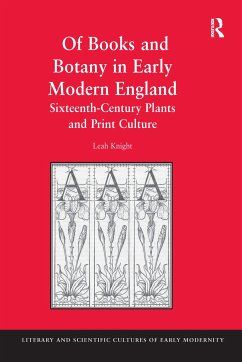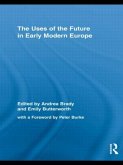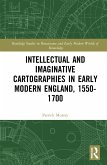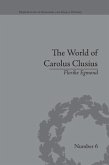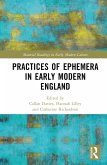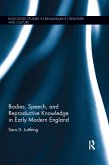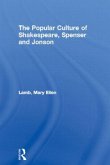Contemplating the textual gardens, poetic garlands, and epigrammatic groves which dot the landscape of early modern English print, Leah Knight exposes and analyzes the close configuration of plants and writing in the period. She argues that the early modern cultures and cultivation of plants and books depended on each other in historically specific and novel ways that yielded a profusion of linguistic, conceptual, metaphorical, and material intersections. Examining both poetic and botanical texts, as well as the poetics of botanical texts, this study focuses on the two outstanding English botanical writers of the sixteenth century, William Turner and John Gerard, to suggest the unexpected historical relationship between literature and science in the early modern genre of the herbal. In-depth readings of their work are situated amid chapters that establish the broader context for the interpenetration of plants and writing in the period's cultural practices in order to illuminate a complex interplay between materials and discourses rarely considered in tandem today.
Prize: Winner of the British Society for Literature and Science (BSLS) Book Prize for 2009 'All the judges for this year's BSLS book prize agreed wholeheartedly that Leah Knight's 'Of Books and Botany in Early Modern England' was a very worthy winner. Knight's book is a fascinating contribution to the study of literature and science in the early modern period. Elegantly written and meticulous in its scholarship, it opens up the field of botany in the sixteenth century for literary analysis and cultural history, drawing out too how central early modern thinking about plants was to print culture as a whole. As well as being an excellent contribution to the field in its own right, 'Of Books and Botany' is one of an important new series of books on Literary and Scientific Cultures of Early Modernity published by Ashgate. Ashgate has been leading the field in publishing books on literature and science, and it is extremely encouraging to see research into literature and science in the early modern period getting the same serious consideration and support as work in this same field in the nineteenth and twentieth centuries.' John Robert Holmes, Chair of the judges for the BSLS Book Prize for 2009. 'Leah Knight's pleasant and stimulating book is a strong and real contribution to several fields. It represents a fascinating extension of recent discourse on collecting in the early modern period to include plants dead and alive, both in images and real. At the same time, this study brings something new to the history of the early modern book and is a valuable study of the textual, rhetorical, and literary qualities of herbals.' Rebecca Bushnell, University of Pennsylvania, author of Green Desire:Imagining Early Modern English Garden 'Of Books and Botany in Early Modern England provides an original contribution to sixteenth-century plant and print culture and an illuminating and welcome excursion into books and botany in early modern England.' British Society for Liter

